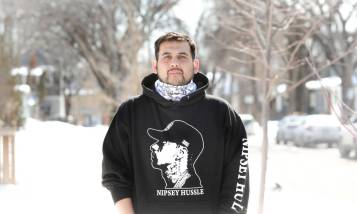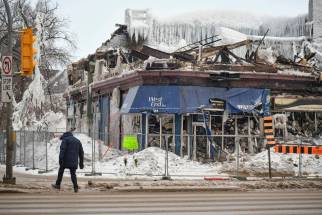Uncertainty after the unthinkable Life, as the people who spent much of theirs inside the Kirkwood Block knew it, was irrevocably altered when a massive fire destroyed the 109-year-old building
Read this article for free:
or
Already have an account? Log in here »
To continue reading, please subscribe:
Monthly Digital Subscription
$0 for the first 4 weeks*
- Enjoy unlimited reading on winnipegfreepress.com
- Read the E-Edition, our digital replica newspaper
- Access News Break, our award-winning app
- Play interactive puzzles
*No charge for 4 weeks then price increases to the regular rate of $19.00 plus GST every four weeks. Offer available to new and qualified returning subscribers only. Cancel any time.
Monthly Digital Subscription
$4.75/week*
- Enjoy unlimited reading on winnipegfreepress.com
- Read the E-Edition, our digital replica newspaper
- Access News Break, our award-winning app
- Play interactive puzzles
*Billed as $19 plus GST every four weeks. Cancel any time.
To continue reading, please subscribe:
Add Free Press access to your Brandon Sun subscription for only an additional
$1 for the first 4 weeks*
*Your next subscription payment will increase by $1.00 and you will be charged $16.99 plus GST for four weeks. After four weeks, your payment will increase to $23.99 plus GST every four weeks.
Read unlimited articles for free today:
or
Already have an account? Log in here »
Hey there, time traveller!
This article was published 11/02/2022 (1397 days ago), so information in it may no longer be current.
Not long before the smoke, Joe Kornelsen arrived at the Kirkwood Block wearing his winter boots and winter coat, his neck wrapped in a handmade, two-metre-long scarf, the colour of golden wheat.
It was a Wednesday morning in February. Cold — about -20 C. A barricade of snow was piled high at the corner of Portage Avenue and Langside Street. Kornelsen walked in the side door, and headed to his desk, settling down for a day of work as the executive director of the West End BIZ, a non-profit organization that promotes the neighbourhood’s businesses and the neighbourhood itself.
Beside his desk, he had three pairs of dress shoes, for important meetings. On his desk was a grant application yet to be completed. He took off his coat and unwrapped his scarf, hanging them on a pair of hooks.
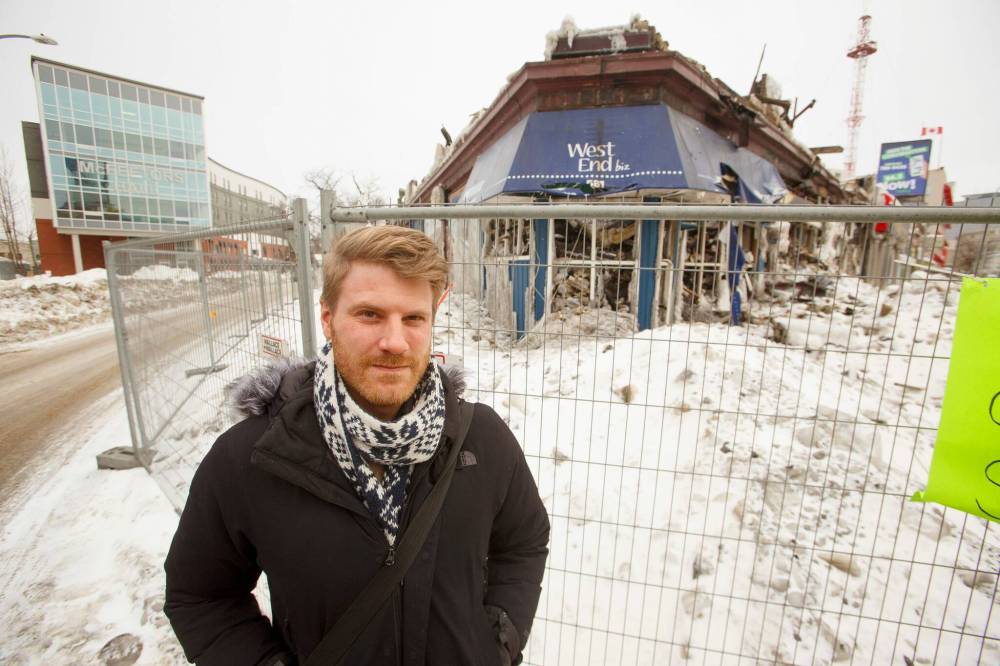
Soon, two community safety patrols arrived and joined the BIZ’s maintenance co-ordinator in the back, warming up for a few minutes before heading out into the cold.
None was the first to work that morning. One office mate never left. Selena the office cat had the run of the building. She perched wherever she wanted and hid behind boxes and under tables. In the basement, she had her own little bed where she could retreat. She liked to hang out in the back with the patrols and the maintenance crews, and that’s where she was on Wednesday morning when the arm on the red fire alarm began striking the bell.
Kornelsen and the staff immediately shot up from where they were sitting. They did not know what triggered the alarm, but when they got outside, and walked around the windrows of snow, they saw it: the smoke, the flames, the smog, seeping out from one of the storefronts they shared the main floor of the building with. It was hard to see where the burning was coming from, but it seemed to be the Celestial Church of Christ’s Redemption Parish.
When a fire is burning, you act quickly. You leave, and then you call the fire department. But what then? “We stood around, not sure what to do,” says Kornelsen. All they could do was stare from the other side of Langside. The fire looked small, at first, maybe even manageable, and the four evacuees were thinking that perhaps by lunchtime, they’d be back inside. Kornelsen was hopeful.
But the fire spread quickly. It spread from the church to the salon to its north and to the Japanese pastry shop on its south, to the office next to it and onward to the convenience store. Kornelsen’s organization was dedicated to helping businesses just like these, and here he and his staff stood, helpless. The street was cloaked by a shield of smoke as the building was doused from all angles. There was a fire department aerial cherry picker at the west corner of Portage and Langside and one north of the building, and a pair of engines spewing never-ending streams from the street. There, firefighters gripped hoses, and the water froze the tree branches. The fire spread to the second floor, and the ball of black could be seen from kilometres away in any direction.

“It was a beautiful building,” said one firefighter, using the past tense as the present unfolded. “They don’t build them like this anymore,” said another.
The two-storey building had to be 100 years old, one pedestrian taking a photo of the fire said. “Older,” said a man heading in the opposite direction down Langside.
Hope dwindled, and then it dissipated completely as the 109-year-old Kirkwood Block was painted orange and black by fire and smoke. Kornelsen would not get to go back to his desk, and crews would be staying all night and into the next day to keep the fire under control.
Kornelsen realized slowly and then quickly what else had been lost inside: personal items, professional equipment, thousands of documents and photographs. The murals on the exterior wall depicting “Life on Langside” and the old Winnipeg Roller Rink. That two-metre-long scarf that took his wife three years to knit.
And Selena.
When the alarm rang, the cat ran off, frightened by the piercing din as the others went outside. She was the only living creature left in the building as it was swallowed by flames.
Everyone else who was inside when the fire started — the four West End BIZ workers, along with Min Soon and Young Ae Lee, the owners of the convenience store — made it out safely. No human lives were lost.
But the fire changed everything, and destroyed every thing it touched. As the building charred, dozens of lives united by the same bricks and mortar were sent scattering. The place they shared was gone.
● ● ●
As they left Seoul, Min Soon and Young Ae Lee dreamed.
It was 1998, and the young couple had arrived in Winnipeg with an idea of what was to come for themselves and their two young sons: a new life, a better life, opportunity.
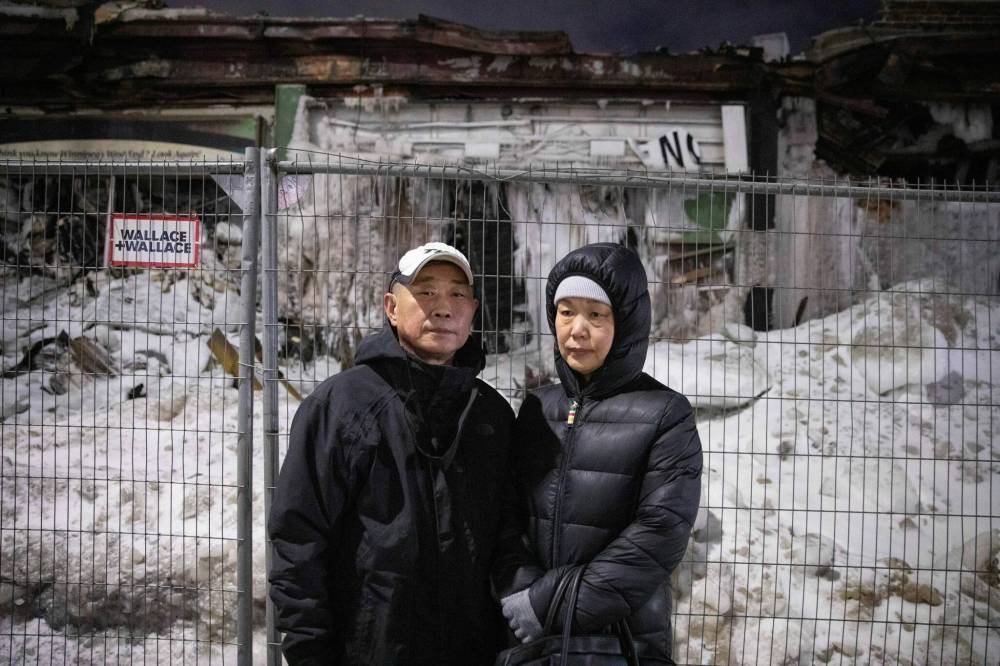
They weren’t sure how they’d achieve it, one son says, but they were diligent in their pursuit, so when the opportunity arose to buy a convenience store on Portage Avenue, they did it, and moved their young family into the residential unit adjacent to the shop.
Eben Convenience was where Paul Lee grew up. He and his brother Kevin ran around the aisles as their parents stood at the counter, selling whatever needed to be bought to whoever needed to buy it. In the summertime, the slushie machine was a big draw. Fifty-cent soft drinks, cheaper than anywhere else in the 2010s, were a bargain for nearby university students. There was a wall of DVDs to rent, and Paul and Kevin thrilled in watching new releases before anyone else.
Paul isn’t sure what his parents did before Eben Convenience; they owned the store from the time he was a toddler to the time he graduated from the University of British Columbia. Twenty-four years.
It was never easy work, nor was it lucrative, but it was meaningful, and the Lees took the word “convenience” seriously. Despite challenges with a new language and a new country, Paul says his parents always managed to connect with very customer who walked in. They treated everyone with respect, and became fixtures of the community. “Their experience of running the store transcended any barrier,” he says. A smile or a wave spoke volumes.
They worked tirelessly, taking only Christmas Day off to rest. Eventually, they moved out of the store, but recently moved back in, bringing with them their worldly possessions as the pandemic wreaked havoc on their business. No university students or staff downtown, plus less other foot traffic, meant many slow days, and the hours were reduced.
When the fire started, a firefighter came to the door and told the couple they needed to evacuate. “I don’t think they realized the magnitude,” says Paul. “The day of the fire, they left with only the clothing on their backs.”
“The day of the fire, they left with only the clothing on their backs.” – Paul Lee
Paul found out about the fire from his brother, also living in B.C., via text message. It was a 20-second video with a giant plume of smoke, but Paul saw through it and immediately knew where it was billowing from. Kevin, who came home quickly, told Paul their parents were safe.
That was a relief, but Paul started thinking about the store — the family business and their life — and everything else: their baby photos, wedding albums, passports, furniture. “It was truly a loss of everything,” he says. “We put everything our family had into that place, and to see it lost… it’s just earth-shattering.”
They had to find their parents a place to stay, and an acquaintance gave them access to an unused AirBnB unit. They went out to buy new clothes. Friends gave them winter coats and boots. Everything they needed to get back on their feet. Twenty-four years to the day they opened their store, the Lees had to start from scratch.
Kevin had the idea to start an online fundraiser on GoFundMe, and their parents gave it their blessing. Paul wasn’t so sure about the idea of sharing their story far and wide, but eventually came around. “What did we have to lose?”
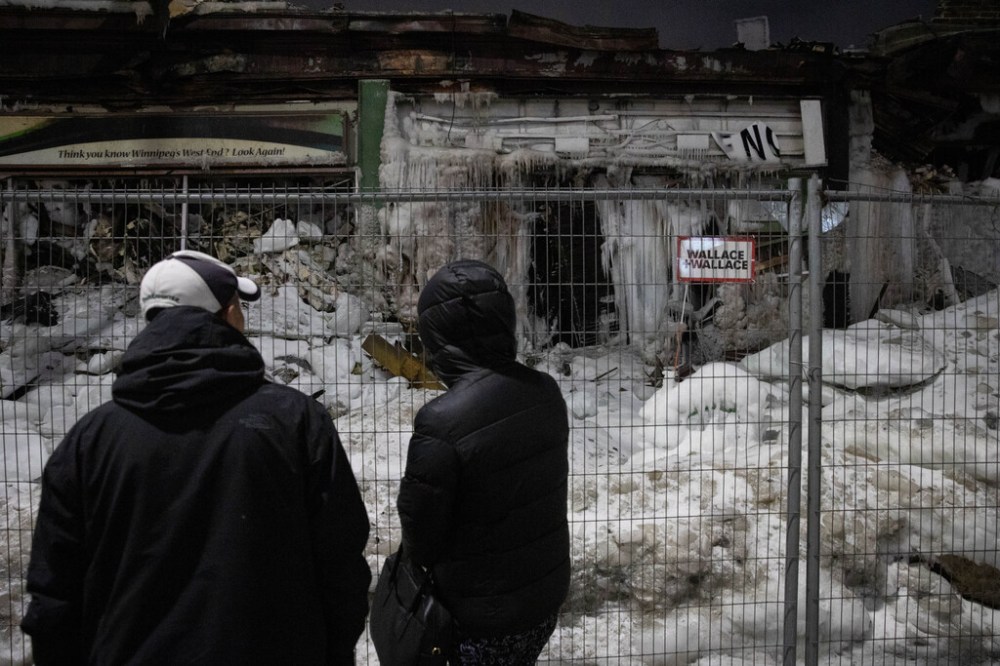
They set a goal of $40,000. By the following Wednesday, they had eclipsed it. Donations came in from all over the world, Paul says: concerned Winnipeggers, members of the Asian diaspora and shopkeepers who felt their pain and shared their sympathy. “My family immigrated like yours to Toronto in 1964,” wrote one donor. “My parents had a convenience store among other businesses. I understand your parents very well…. They remind me of my own parents. I know your parents will get back on their feet, they are tough and resilient, like mine.”
Some fictional shopkeepers cared, too. Paul Sun-Hyung Lee, who acted in the role of Appa on television’s Kim’s Convenience, a show depicting a Korean family running a convenience store in Toronto, shared the fundraiser to his 80,000 Twitter followers. Andrew Phung, a co-star, appealed to his 54,000 followers to “show up for the Lee family.” People did.
In the shadow of their loss, Paul cannot believe the graciousness and generosity of those who’ve helped his parents and his family in their time of need. He also cannot believe his foresight: the last time he was in Winnipeg, he took a picture of a now-lost photograph of his parents on their wedding day in Seoul.
“My dad looked so dapper in his black suit, and my mom looked so beautiful in her dress.”
● ● ●
Echo Shen took the day off.
Running a bakery is very hard work. Since they opened Not A Donut in September, she and her staff would arrive to 353 Langside, at the Kirkwood Block, at about five in the morning to start making their Japanese-style confections, which they sold in the store and to other businesses across the city.
The first five months went well, despite the pandemic, and customers were beginning to become repeat visitors. The shop got a lot help from Not A Waffle, the storefront’s previous occupant, for whom Shen worked for three years. Things were going so well that the Not A Donut team was on the hunt for a bigger space to increase operations.
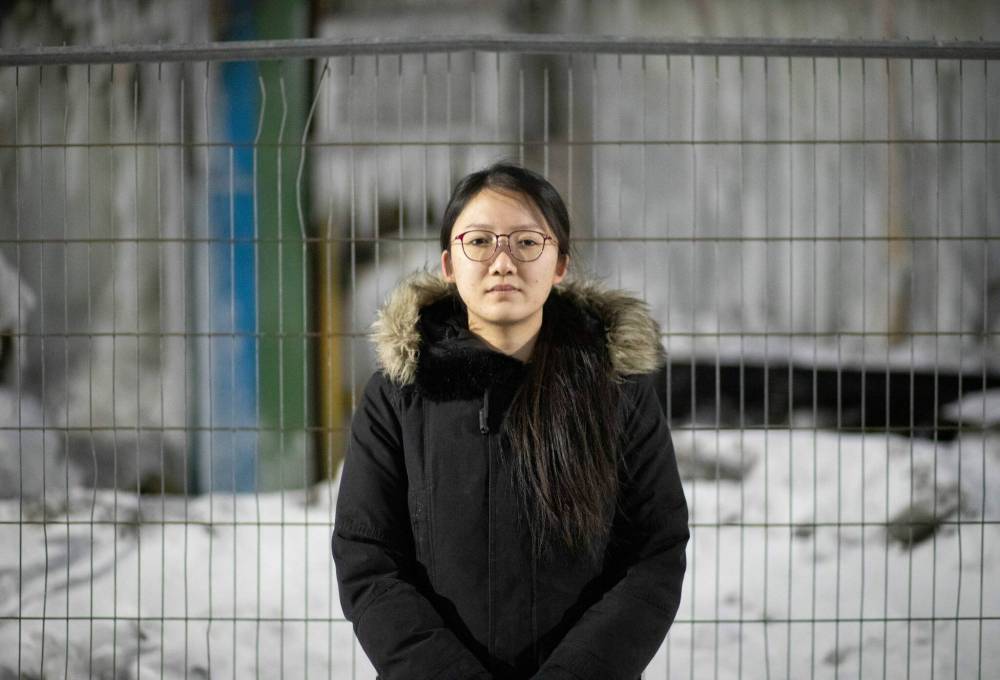
So Shen was exhausted, and thought that Feb. 2 — the day after the beginning of the new lunar year — would be a reasonable day to tell her staff to relax and stay home, celebrate a little. The lunar new year is supposed to be full of hope and happiness. It’s supposed to give confidence. It’s supposed to be a time of reunion. “In China, it’s the time of year where, if you’ve left your hometown, you come back.”
She was in bed asleep when her phone rang with a message over Instagram from a customer, who sent a photo of the church next door. She got there 15 minutes later, racing from south Osborne. At first she thought the fire would be contained to the church, and went back home to find her insurance documents. “We knew some damage would be done,” she says.
When she returned later, the entire building was on fire. “It was more shocking and I was panicking more than I was sad,” she says. “I could feel the heat on my face, even from the other side of the street.” She didn’t cry. She was too emotional to show it.
“It was more shocking and I was panicking more than I was sad. I could feel the heat on my face, even from the other side of the street.” – Echo Shen
But in her head, questions were swirling: would we ever recoup our losses? How vast were those losses? What did our insurance cover and what did it omit? What do I tell my customers?
Shen had a few patrons who were scheduled to come by to pick up their orders, and she frantically called each to apologize and tell them to stay away, that the building was on fire. “We were just waiting to see when the fire would be put out.” It took more than a day before fire crews left the scene, and when they were gone, what remained did not inspire confidence.
Shen and her boyfriend, Mumu Ma, who also owned the shop, were lost for words. Their insurance did not appear to cover the majority of the losses. When she first read the policy, in English — not her first language — she says she did not understand all of its terms. Most people don’t.
In the days since, Shen has been gathering information. She’s been reaching out to the insurance company and speaking with commercial agents about new locations, though any plans will be dependent on how the insurance situation plays out. That could take months. She advises any new business owners to know these things inside and out, a lesson she and Ma learned a very hard way.
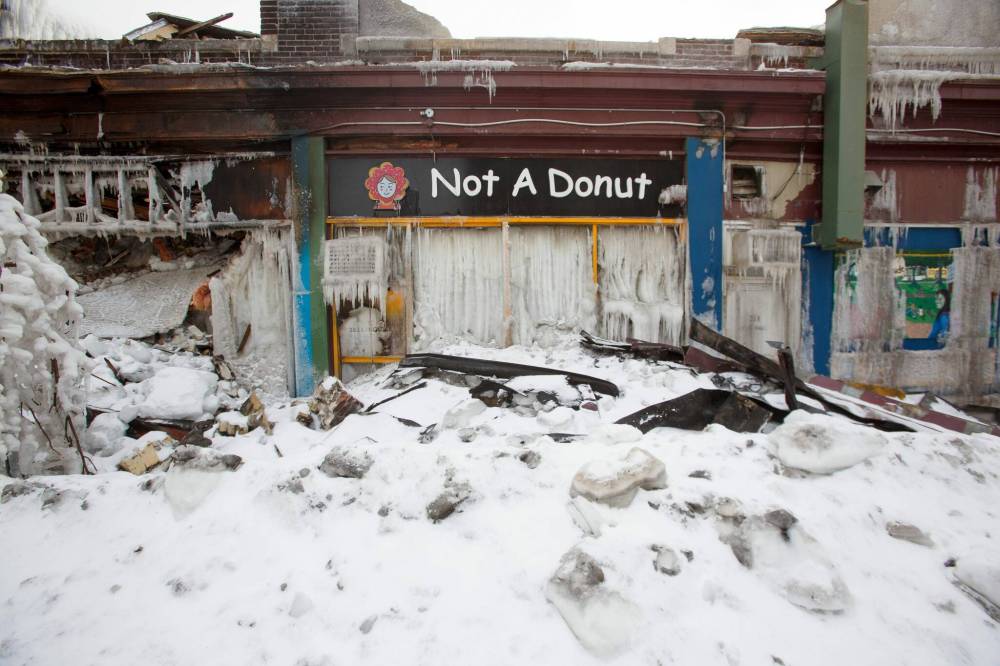
Meanwhile, she has been inundated with supportive messages from customers and strangers, including one bakery owner who also had his business hurt by a fire several years ago. “He understood how we were feeling, and the struggle we must be having,” she says. “I remember that email.”
Eventually, in part because of the thoughtful messages she’s received, Shen did cry, and says she is slowly getting the confidence and patience to keep doing what she loves.
“I still have the desire,” she says.
● ● ●
Yared Teklezigi came to Winnipeg in 2000 and hasn’t stopped working since. “New immigrants have to work hard for the future of our kids,” he says. “I have never had a break.”
When he arrived, from South Africa via Ethiopia, a country he fled as an Eritrean refugee, he did not know what to expect. Did he have a career plan? “No, my friend. I was an immigrant. I came for the peace of the country.”

After one week, he found work in an electronics shop on Pembina Highway, making minimum wage working with computer wiring. When 9/11 happened, he was laid off, and got a job behind the counter at a Mac’s Convenience store in St. Vital. He worked security gigs simultaneously.
“Eighteen hours a day, my friend, two or three jobs at once.” Meanwhile, he dreamed. In 2006, he opened an urban clothing shop in Portage Place called GKS Clothing, and ran that shop for a decade before opening Spades, a nightclub in the Kirkwood Block. He loved it, but the club was closed last year, and Teklezigi opened a salon and barber shop in another building unit, always thinking of his next move.
The salon was busy, and Teklezigi frequently went there to get his beard touched up. Men came, women came. They did beards, they did braids. They did whatever. Aside from COVID-imposed closures, there was always a steady flow.
Two Wednesdays ago, Spades salon had yet to open, and Teklezigi was in East Kildonan, helping his brother open his clothing store, Sam’s Streetwear. His phone rang, and Teklezigi drove to the salon. Like the others, he saw only the church on fire. “I never thought the whole building would burn down,” he says. But it did, and Teklezigi stood, watching in disbelief as it happened. His work. Gone.
“It’s not an easy thing to lose what you work for.” – Yared Teklezigi
He started thinking about what would come next. He isn’t sure. “But I know I will very soon.”
“My friend, let me tell you something. I came here with nothing. I do what I can do the best I can. Things like this happen,” he says. He has his family. “I am not scared, not worried. I feel badly, but there is nothing I can do to change what happened.
“It’s not an easy thing to lose what you work for.”
All he can do is move forward. After the fire, he went to pick his kids up from school, and then went home.
● ● ●
The Ripperz practised in the basement.
About four years ago, the bandmates saw an ad for a unit underneath an old building on Portage Avenue and fell in love. It was the right price. It had a secure entrance. It was a decent location.
“And the beer fridge was already there,” says guitarist Chris Sawatzky.
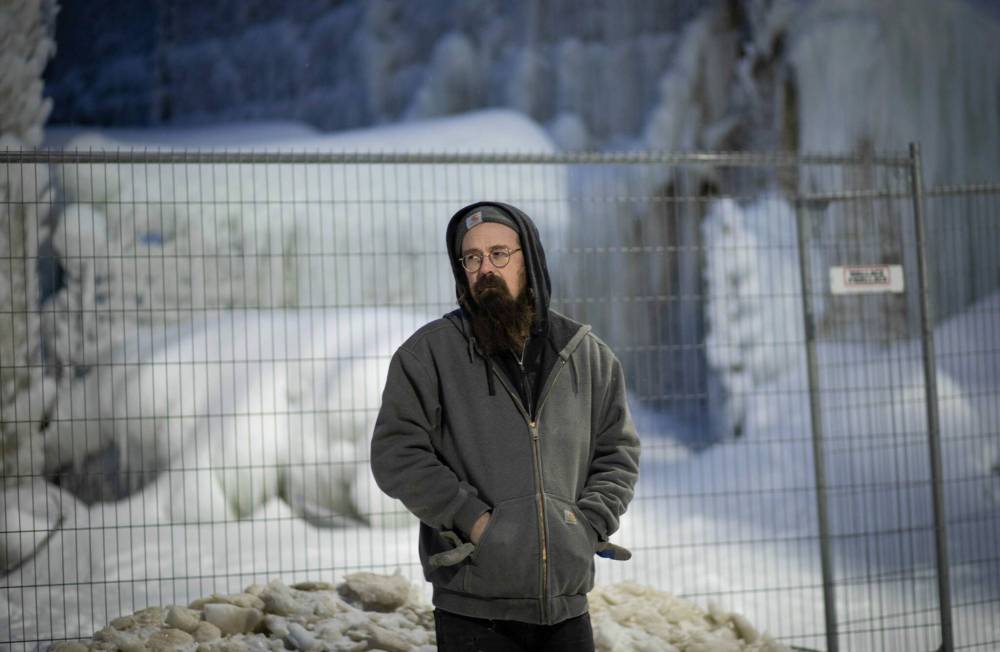
It was their first-ever rented jam space: the band grew up together playing at their drummer’s parents’ house, and then later, at their drummer’s house, but when the drummer moved, they had to rent: the Kirkwood Block was exactly what they were looking for.
It wasn’t much: brick walls and concrete ceilings, a couple of couches. But it worked, and the band spent hundreds of hours there playing music, discussing wrestling history and Googling pictures of Andre the Giant holding a beer can. Two other bands, the Skellies and Pleasure Craft, shared the space, and a poster on the wall of Mobina Galore revealed that they were not the first bands to practise down there.
For most of their residency, Sawatzky says bandmates would tote their equipment home, but after several years with no incidents, some started to leave their instruments and gear at the Kirkwood, behind lock and key.
“I had a Gibson Les Paul (guitar) down there, I had three old amplifiers they don’t make anymore. I had a couple of speaker cabinets. All my cables. My pedal board. At least one notebook. Some vinyl, our CDs, our T-shirts and hoodies,” he says. A flag with the Jets logo that read, “The Ripperz,” that a fan in Red Deer, Alta., made for them. A trophy from an old Canada Day street-hockey tournament.
He also had a prized guitar, a bright-red Deusenberg Starplayer he’d bought from the Watchmen’s Danny Greaves for $1,500.
“We tried to figure out what to do, but it became very clear very quickly there wasn’t much we could do.” – Chris Sawatzky
Sawatzky was in his Higgins Avenue carpentry shop when he got a text. “I was taking an early lunch, and my buddy Fireman Dan texted the band.” Fireman Dan is the band’s guitarist, Dan Thomas, who works as a Winnipeg firefighter: “Guys, there’s no easy way to say this, but I think our band room is on fire.”
Sawatzky checked his news apps and jumped in his car to go see what was what. He flipped on the radio, and the broadcaster was advising drivers and pedestrians to stay away from the Kirkwood Block. “I figured if anybody has a reason to get down there, it’s me,” Sawatzky says.
He was blocks away when he saw the smoke. He called Fireman Dan, who did not like what he was seeing from the other side of Portage Avenue, where the off-duty firefighter was in the band van. It looked like a very real fire, and it didn’t look like anybody would be going inside to save anything. Their equipment was not insured.
Sawatzky started a tally: his guitars, his amps, his chords, everybody’s everything. Sawatzky was in the habit of taking his guitar home, but Fireman Dan said he had been in the room a few weeks earlier strumming one.
“We tried to figure out what to do, but it became very clear very quickly there wasn’t much we could do,” Sawatzky says.
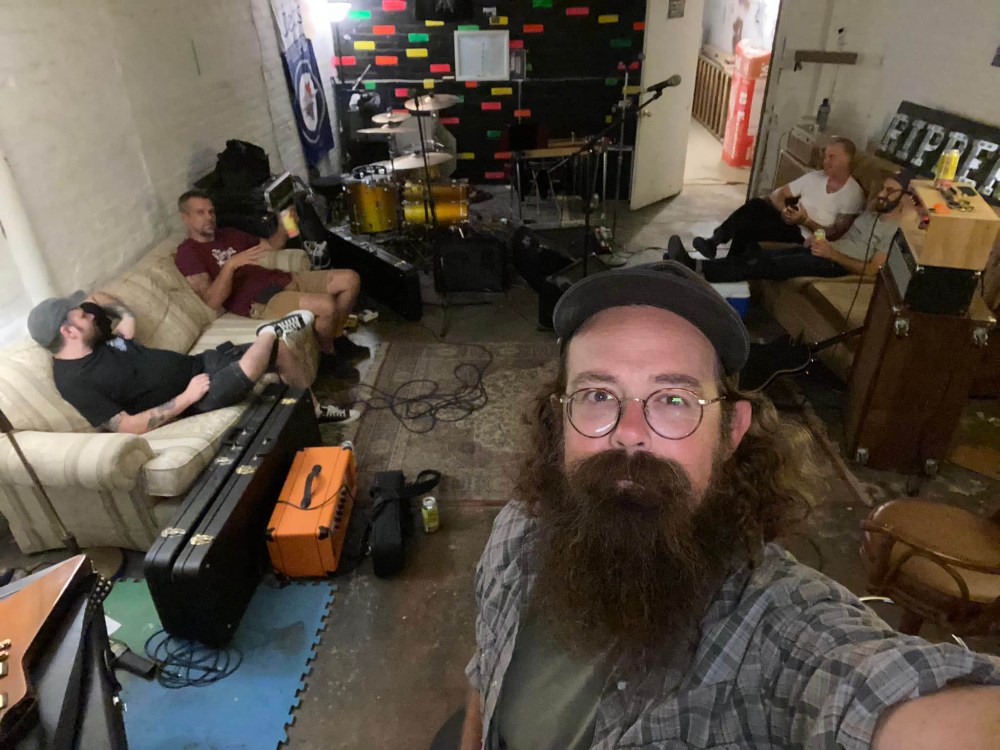
So he drove home to check to see which guitars were under his bed in their cases, thinking about that Starplayer. He realized that one wasn’t as important as he thought. The guitar he was thinking about most was a Gibson SG he bought more than 20 years ago, one of his first electric guitars.
“I realized that even if I lost everything, that’s the one guitar I would miss the most. If I lost that one guitar, I know how sad I’d be.” He walked into his house and went to his bedroom.
“Fortunately — if there is a ‘fortunately’ to be spoken of — that one guitar was still under the bed.”
The band has since raised nearly $20,000 to replace their destroyed gear, reminding Sawatzky how many good people there are in the world. It’s been humbling and awe-inspiring. He’s had to remind himself to shut up and say thank you.
But the Kirkwood Block is a pile of rubble, and in the days since the fire, Sawatzky — and many others — have seen the old building, designed by architect John Atchison before the First World War, in a new light.
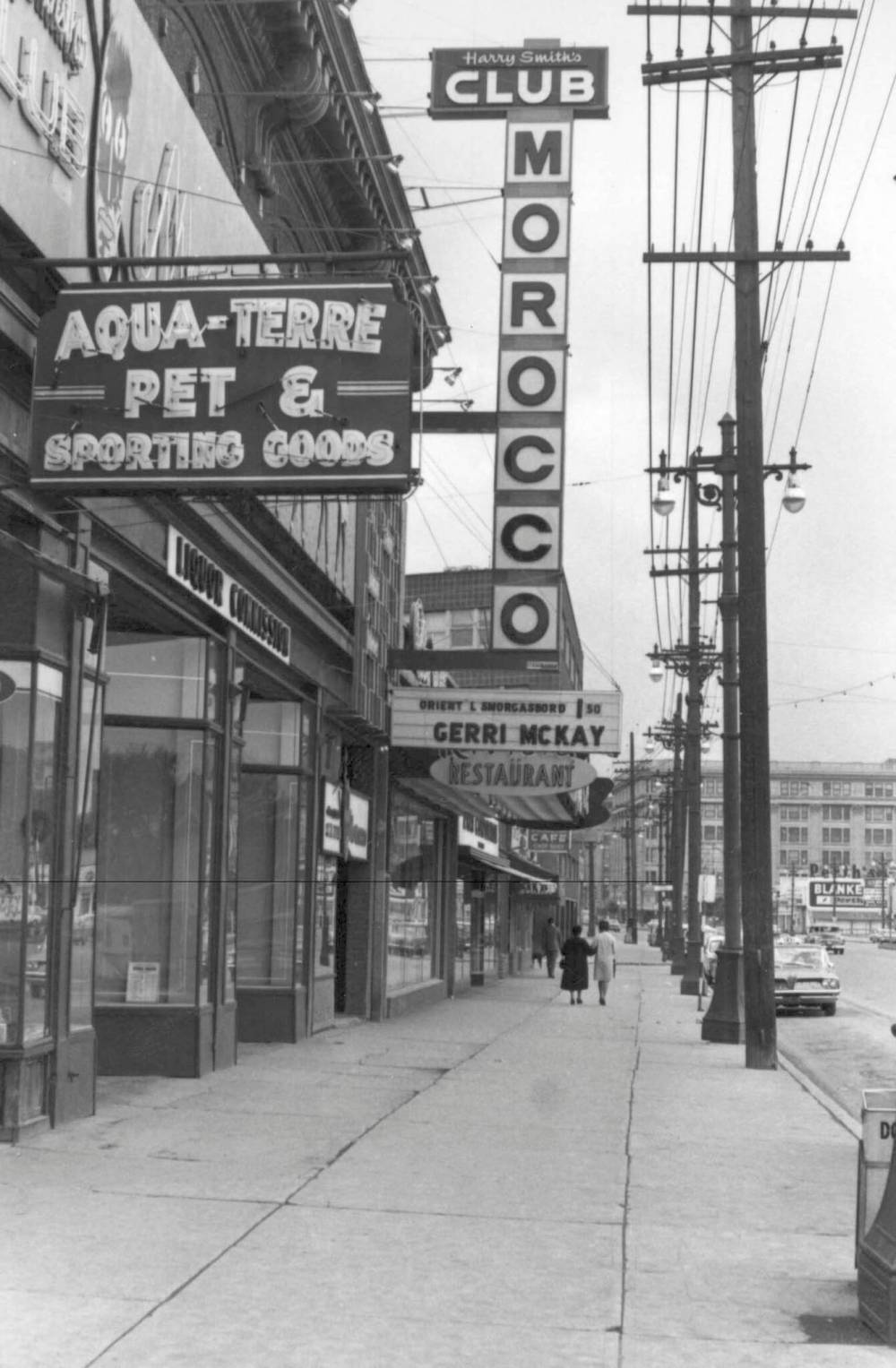
Over a century, hundreds of stories started and ended there, some abruptly and some according to plan. There was a mattress shop, a book store, a pet store, a coffee place, a collectibles shop, restaurants, clothing stores, grocery stores, the legendary Club Morocco, and who knows what else. There were bands before The Ripperz. There were earlier versions of the Lees and Shen and Teklezigi who looked at that building on the corner, saw their futures and built their lives.
“There are definitely stories in there,” says Sawatzky, who speaks like a songwriter. “It seems whenever something ends, people become interested in it. I find myself to be the same way. A building burns down, and only then, you start hearing about its stories.”
“And this was one of those under-the-radar buildings. It wasn’t the Burt. It wasn’t the old Eaton’s block. It’s not the Bay downtown. It was a regular old building, and maybe that’s what we liked about it. It felt safe. Nobody’s ever looking twice at it.”
Not until a fire starts and doesn’t stop.
● ● ●
Olawale Ayilara was devastated to find out the parish was burning.
The Celestial Church of Christ was run out a small storefront on the main floor of the Kirkwood Block, and became a meaningful place to the parish’s 30 members. Wednesday is normally a day they offer services.
Ayilara headed to the church as quickly as he could, and stood in sadness. “After some few minutes, I summoned the courage to go on,” he says. And naturally, he looked toward God. He thought of Psalm 34, verse 19. “Many are the afflictions of the righteous, but the Lord delivers them out of them all.”
“I looked at the barber, I looked at the West End BIZ, I looked at the grocery shop,” Ayilara says on the phone, a week later. God, these are businesses who will have great difficulty in their recovery, he thought. What was God saying to them, to all of us?
During Tuesday-night Bible study, held over Zoom the week after the fire, the congregation studied Martha, a sister of Lazarus, who appears in the New Testament when Jesus arrives in Bethany.
“Martha said to Jesus, if you had been here, my brother would not have died,” Ayilara explains. “But Jesus said to her, your brother will rise again.” In the ensuing verses, Jesus raises Lazarus from the dead.
It was a fitting character to study, Ayilara says. Sometimes, things that sound impossible in our head, that are difficult to believe, can happen. That stands for both the fire and what happens after, he says. “Things we can see that can’t be explained fully by the knowledge of this world.”
It all comes back to God, Ayilara believes. “He is the Alpha and the Omega. He knows the beginning from the end the end from the beginning. Nobody knows what will happen tomorrow but him.”
”They don’t have to be Christians, before or after the fire. It is enough to say, “God, help us all.” – Olawale Ayilara
So why did this happen? This fire? Ayilara brings up the stories of Joseph and Moses, who experienced tremendous hardship before experiencing freedom. “It’s part of God’s plan.”
That doesn’t take away the pain of losing what matters, he says. It doesn’t eliminate the stress or the dread or the strain this fire has caused for so many people who have lost many things. And not every one believes as strongly as Ayilara, if at all, that things will get better.
“When this happened, the first thing we did as a church was to pray for all businesses (and people) in the building. Lord, give us the strength, grace and power to pass through this process. We strongly believe it. They don’t have to be Christians, before or after the fire. It is enough to say, “God, help us all.”
“The voice in my head told me that He will make everything all right,” he says. Ayilara believes that, with everything he has.
“I don’t doubt it. I don’t doubt God.”
ben.waldman@winnipegfreepress.com

Ben Waldman covers a little bit of everything for the Free Press.
Our newsroom depends on a growing audience of readers to power our journalism. If you are not a paid reader, please consider becoming a subscriber.
Our newsroom depends on its audience of readers to power our journalism. Thank you for your support.


